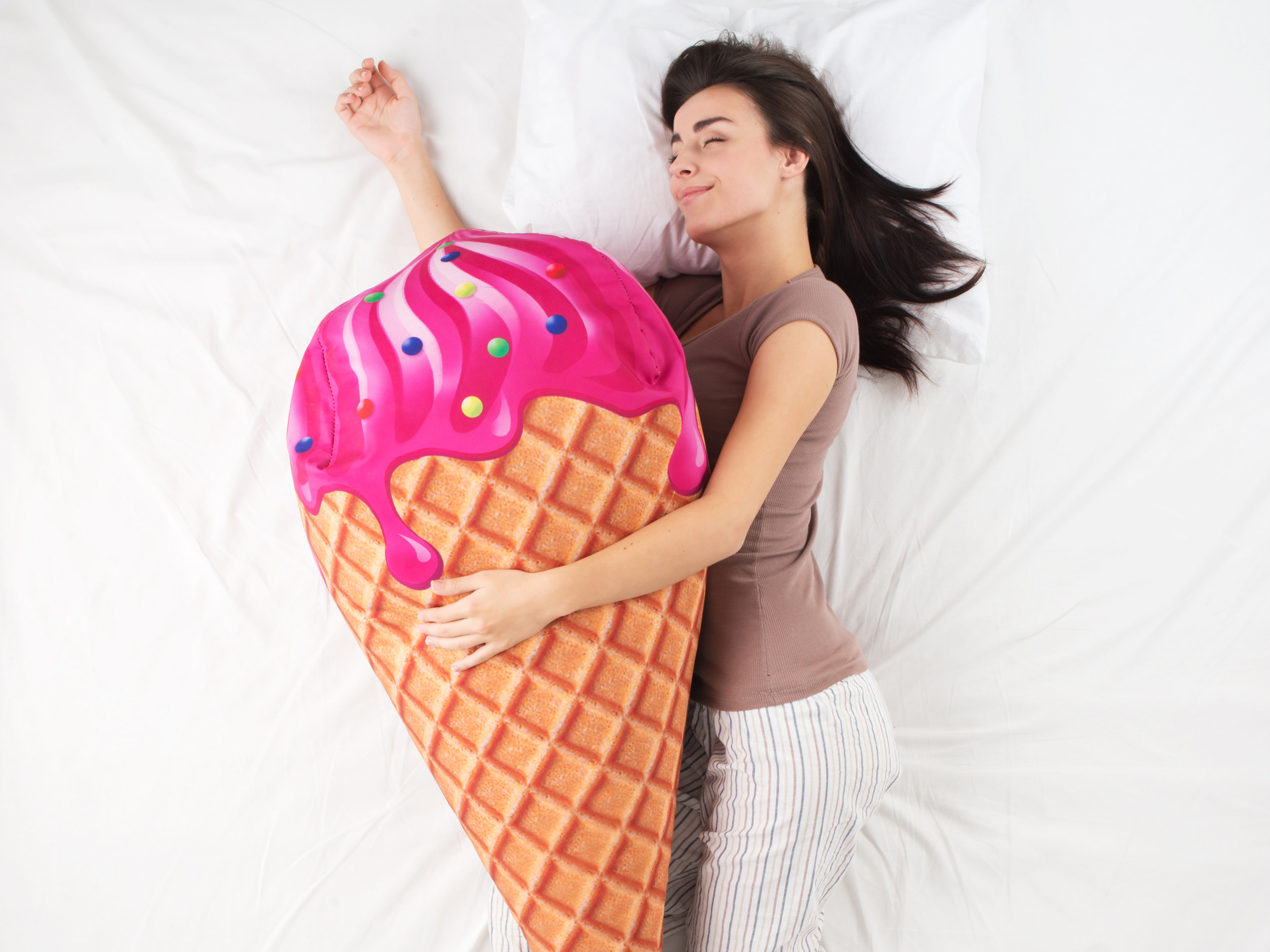Get Easy Health Digest™ in your inbox and don’t miss a thing when you subscribe today. Plus, get the free bonus report, Mother Nature’s Tips, Tricks and Remedies for Cholesterol, Blood Pressure & Blood Sugar as my way of saying welcome to the community!
Ditch junk food cravings in your dreams

If you’re trying to overcome junk food cravings, you need to think strategically. That’s because junk food creates an addictive response in your body that’s almost as hard to shake as a drug or alcohol addiction. So if you’re ever going to get over it, you need a solid plan…
The first step to any craving-busting strategy is to figure out why you started turning to junk food in the first place. I know junk food tastes good. But if it’s become a staple of your diet, there’s usually a deeper reason. Is it because you’re stressed at work? Because you’re strapped for time, and it’s convenient? Because you’re bored?
Depending on your reason for eating junk food, you’ll need to use a different solution to overcome your cravings. You may need to stop overcommitting at work, for example. Or stock your fridge and pantry with healthy snacks and meals you can eat when you’re short on time.
But if you’re having a hard time pinning down the cause of your cravings, you should know… the root of your junk food cravings may not be in the office or the kitchen… it may be in the bedroom.
Less REM means more cravings
A recent study conducted by researchers at the University of Tsukuba’s International Institute for Integrative Sleep Medicine discovered a direct link between a loss of REM sleep and junk food cravings.
These researchers found that mice who were deprived of REM sleep craved unhealthy foods that were high in fat and sugar. That’s basically the equivalent of you turning to donuts and fast food to keep you going on a day where you didn’t sleep well. But why does a little lost sleep have such a disastrous effect on food cravings?
Well, according to researchers, it all comes down to your prefrontal cortex, a part of the brain in the frontal lobe. The prefrontal cortex plays a role in your sleep patterns. But it also plays a role in determining which foods appeal to you. People who are obese, for example, have a lot of activity in their prefrontal cortex when they see high-calorie foods. It seems a loss of REM sleep affects your prefrontal cortex in a way that makes junk food extra appealing.
Stop junk food cravings with sleep
If you suspect that poor quality sleep is behind your junk food cravings, it may actually be good news, because you know how to solve your problem — get better quality sleep. The question is…how?
Well, there are a few ways to get more REM sleep, like:
- Cutting out alcohol. An evening cocktail or two can rob you of REM sleep time.
- Avoiding prescription or over-the-counter sleep aids. Believe it or not, most of the sleep aids you’ll get from the pharmacist or drugstore will reduce the amount of REM sleep you get. Instead, pop a melatonin pill before bed. Those have been shown to increase your REM sleep.
- Optimizing bedroom temperature. If you get too cold or too hot while you’re sleeping, you’re more likely to wake up and interrupt your REM sleep. The best temperature for sleep is between 60 and 67 degrees Fahrenheit.
- Sleeping more. Sleep cycles typically last for 90 minutes, so if you extend your usual night’s sleep by an extra 90 minutes or so, you should get an extra dose of REM. This may not be a realistic solution every night, but try treating yourself to extra sleep at least a couple of nights per week.
For more tips on better sleep, here’s what our doctors say:
12 natural aids that help you nod off
How to get your best sleep ever
Tips A to Zzzzz on getting better sleep
Sources:
-
McEown, et al. “Chemogenetic inhibition of the medial prefrontal cortex reverses the effects of REM sleep loss on sucrose consumption.” eLife, 2016.
-
Muzur, et al.“The prefrontal cortex in sleep.” Trends in Cognitive Science. Nov. 2002;6(11):475-481.
-
“Brain Basics: Understanding Sleep.” The National Institute of Neurological Disorders and Stroke. http://www.ninds.nih.gov. Retrieved December 6, 2016.
-
“Your Sleep Cycle Revealed.” Psychology Today. https://www.psychologytoday.com. Retrieved December 6, 2016.
-
“The Ideal Temperature for Sleep.” The National Sleep Foundation. https://sleep.org. Retrieved December 6, 2016.












